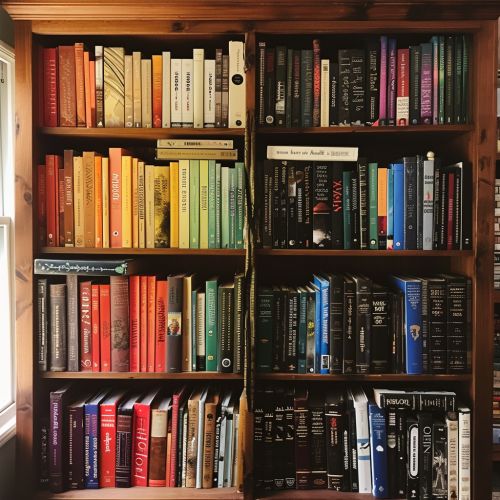21st Century Literature
Overview
The 21st century literature, often referred to as contemporary literature, is marked by a multitude of voices, styles, and genres. It is a period of literature that has been shaped by a rapidly changing world, influenced by technological advancements, globalisation, and significant societal shifts. This era has seen the rise of new literary movements and the continuation of others, with authors exploring themes such as identity, culture, technology, and the human condition in innovative ways.


Literary Movements
Several literary movements have emerged or continued to evolve during the 21st century. These movements, each with their unique characteristics and themes, have played a significant role in shaping the literary landscape of this era.
Postmodernism
The postmodernist movement, which began in the mid-20th century, continued into the 21st century. Postmodern literature is characterized by a rejection of absolute truths and grand narratives, instead focusing on individual experiences and subjective realities. It often employs techniques such as fragmentation, paradox, and unreliable narrators.
Magical Realism
Magical realism, a style of fiction that paints a realistic view of the modern world while also adding magical elements, has been a popular genre in the 21st century. This genre blurs the line between reality and fantasy, often exploring the extraordinary in ordinary life.
Speculative Fiction
Speculative fiction, a broad literary genre encompassing any fiction with supernatural, fantastical, or futuristic elements, has seen a surge in popularity in the 21st century. This genre includes sub-genres such as science fiction, fantasy, and dystopian literature.
Themes
21st century literature is characterized by a diverse range of themes, reflecting the complex realities of the modern world.
Identity
One of the most prevalent themes in 21st century literature is the exploration of identity. This includes issues related to gender, race, ethnicity, and sexuality. Authors often explore the complexities of identity formation and the impact of societal norms and expectations on individuals.
Globalisation
The theme of globalisation is another significant aspect of 21st century literature. Authors often explore the effects of globalisation on individuals and societies, including the impacts of migration, cultural exchange, and economic interdependence.
Technology
With the rapid advancement of technology in the 21st century, many authors have explored its impact on society and individuals. This includes themes related to artificial intelligence, social media, and the digital age.
Notable Works and Authors
The 21st century has produced a wealth of notable literature, with authors from diverse backgrounds contributing to the richness of contemporary literature.
"The Road" by Cormac McCarthy
Cormac McCarthy's novel "The Road" is a notable work of 21st century literature. This post-apocalyptic novel explores themes of survival, morality, and the human condition.
"White Teeth" by Zadie Smith
Zadie Smith's debut novel "White Teeth" is a critically acclaimed work of 21st century literature. The novel explores themes of identity, multiculturalism, and the complexities of modern life in London.
"The Brief Wondrous Life of Oscar Wao" by Junot Díaz
Junot Díaz's novel "The Brief Wondrous Life of Oscar Wao" is a celebrated work of 21st century literature. The novel explores themes of identity, culture, and the immigrant experience in America.
Impact and Influence
The impact and influence of 21st century literature are far-reaching. This era of literature has not only reflected the complexities of the modern world but has also shaped societal discourse and understanding of key issues.
